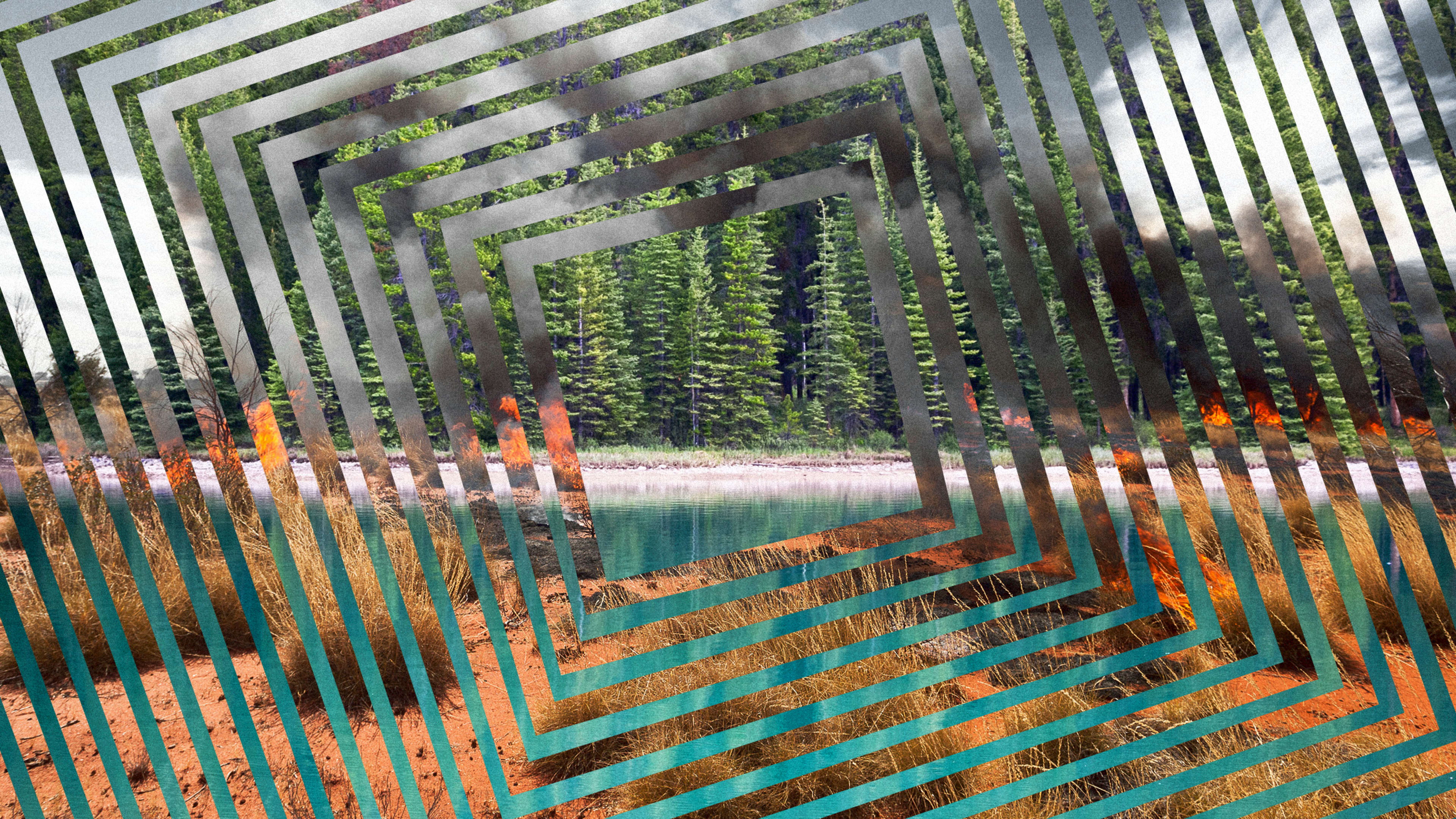Antarctica just hit 65 degrees, the highest temperature it’s ever recorded, and a sea in Siberia is “boiling” with methane. Major parts of the U.S. drinking water supply are contaminated with “forever chemicals”—so called because they virtually never degrade—that are linked to cancers and liver damage, among other health problems. Climate models used to forecast warming are running red-hot and giving us far less time than we thought to turn things around. And last July was the hottest month in the 140 years that records have been kept, the 415th consecutive month with temperatures above the 20th-century average.
There’s a growing sense that we’re approaching a turning point in our civilization’s journey, in which the path diverges between two extremes—a re-flourishing garden planet and a bleak, burning wasteland of increasingly rationed resources. We’re pushing on dominoes that could fall into a runaway series of irreversible tipping points and feedback loops that will leave us to do emergency triage and run rescue-salvage missions on a dying and incinerated planet for the rest of our days. Peak Life is in sight, possibly already behind us, and our current trajectory is about to fling us off the cliff.
The UN is raising the alarm that the mass extinction of plant and animal species—which has already decimated large swaths of the planet—risks collapsing into a catastrophic point of no return, and that halting this destruction of the web of life (along with our food and water security) requires an unprecedented transformation of civilization beginning immediately. A series of global summits through the end of this year is intended to kick off this paradigmatic shift and to loosen our deadly chokehold on the living world.
A few days before the UN’s Climate Action Summit in New York last fall, author Naomi Klein launched her latest broadside against the forces of inertia with the now best-selling On Fire: The (Burning) Case for a Green New Deal, a book designed to inspire a blueprint for the United States’ reemergence as a global climate leader. Klein has long been one of the most visible proponents of such a blueprint—Bill McKibben calls her the “intellectual godmother of the Green New Deal,” and last year she produced the popular short film “A Message from the Future,” narrated by Congresswoman Alexandria Ocasio-Cortez.
Since its publication in September, the cascading series of environmental crises (from the burning of Australia to the melting of Antarctica) have prompted Klein to sound the alarm even louder. She tells Fast Company:
Despite the inferno in Australia and so many other climate alarms going off, no government of a major economy is living up to its commitments under the Paris Agreement. In a way, this was all predictable since the agreement contains no penalties for failure and the U.S. under Trump and Brazil under Bolsonaro have made it clear that they will not live up to their predecessors’ commitments. So would any other government up their ambition? Even Canada under Trudeau is currently bulldozing Indigenous blockades in order to push through new fossil fuel infrastructure. It’s a pretty bleak picture, which is only slightly brightened by growing market jitters about the viability of fossil fuel stocks. The way I see it, the only possible game changer would be a new U.S. administration in January 2021, elected on a transformational Green New Deal platform, one that included significant enough international climate financing to catalyze action in the global south and to shame other governments to do more in a hurry.
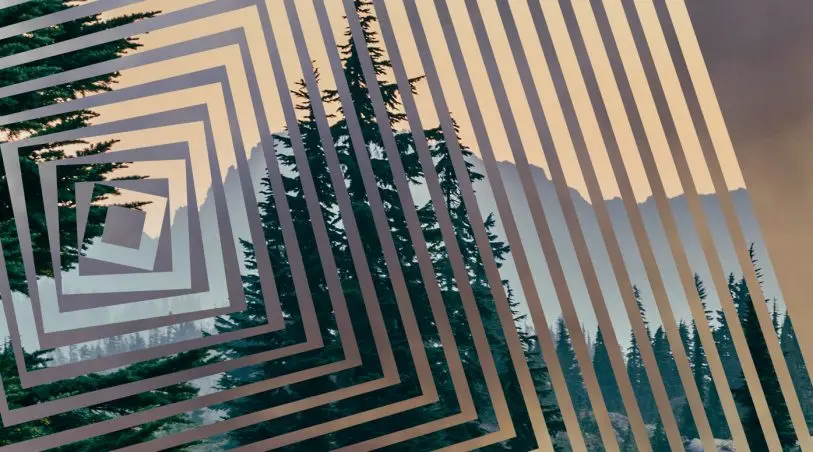
How to leverage crisis into a civilizational transformation
On Fire is a collection of Klein’s essays on the climate crisis from the past decade, with a new 53-page introduction along with other previously unpublished material. Beginning with a piece on BP’s 2010 Gulf oil catastrophe, “A Hole in the World,” the essays examine the crisis through a series of topical lenses including capitalism, geoengineering, wildfires, migrant rights, and soaring inequality—showing how climate breakdown impacts every aspect of society and can only be addressed by focusing on many seemingly disconnected woes.
The epilogue, “The Capsule Case for a Green New Deal,” condenses Klein’s vision of how the jobs crisis, increased income inequality, and the climate emergency can be leveraged to transform the blueprint into active reality, “responses that weave seemingly disparate crises (economic, social, ecological, and democratic) into a common story of civilizational transformation.”
But most fundamentally and centrally, On Fire is a call to revolution, in the form of this civilizational transformation that Klein repeatedly makes clear is necessary to the success of any Green New Deal-style legislative package, as far as the survival of the living planet is concerned. She calls out the “denial” of “a lot of professional environmentalists, the ones who paint a picture of global warming Armageddon and then assure us that we can avert catastrophe by buying “green” products and creating clever markets in pollution.” The global destruction of almost everything nonhuman clearly “demands not just green products and market-based solutions, but a new civilizational paradigm,” as she puts it.
In one essay, titled “When Science Says that Political Revolution Is Our Only Hope,” Klein notes that “there are many people who are well aware of the revolutionary nature of climate science.” The complete “civilizational transformation” that must sweep through not just society but our own moment-to-moment personal perceptions is the book’s through line. “[I] firmly believe that we will not emerge from this crisis without a shift in worldview at every level,” she concludes. At an event with Greta Thunberg and other young climate activists on September 9 hosted by The Intercept, Klein said that “we need to embrace revolutionary levels of change immediately.”
Klein spends much of her time in On Fire exploring the political and cultural and emotional barriers to this transformation, the deep-set forces that have prevented this revolution from catching fire—even as it becomes increasingly clear that life depends on it. She realizes that “the dominant theories about how we had landed on this knife edge”—those that blamed electoral cycles, that the crisis seemed too distant, the enormous expense of climate action, the lack of sufficient clean technologies—were “becoming less true over time,” she writes. After all, clean tech is becoming much more affordable while trillions of dollars continue to be wasted on “endless wars, bank bailouts, and subsidies for fossil fuels.” Klein realizes that “there had to be more to it,” explaining that the book “tracks my own attempt to probe a different set of barriers – some economic, some ideological, but others related to the deep stories about the right of certain people to dominate land and the people living closest to it, stories that underpin Western culture.”
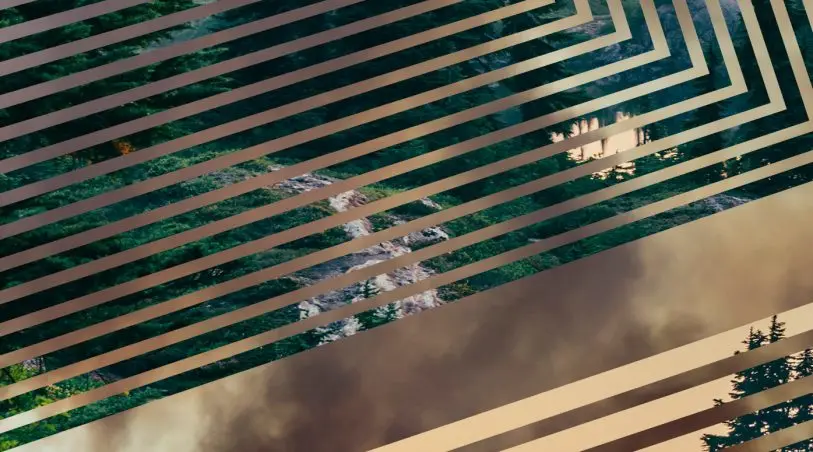
When we started to view nature as a machine
This refusal to reckon with and respond appropriately to the news of our collective mortality leads On Fire to read as a kind of ecological version of The Denial of Death, Ernest Becker’s 1974 Pulitzer Prize-winning book about our inability to deal directly with our individual mortality, and how our lives (and hence society) consist of a series of defense mechanisms and diversionary projects into which we channel our fear of dying. And while we’ve struggled for millennia to deal with our individual mortality, we’ve only had 30 years to process the awareness of our self-inflicted and voluntary species-wide mortality (along with taking the rest of life down with us).
This awareness about our collective mortality was badly timed, dawning as it did in the late 1980s, at the end of that decade’s fever dream of neoliberalism, deregulation, hyper-consumerism, and globalization of material goods that all combined to light an uncontained, planetary economic bonfire, notes Klein.
Naomi KleinWith nature now cast as a machine, devoid of mystery or divinity, its component parts could be dammed, extracted, and remade with impunity.”
But while that decade may have ignited our current virulent strain of global capitalism, Klein traces the fuse back to the 1600s, when “the notion that nature is a machine for us to reengineer at will” was born. Klein, citing environmental historian Carolyn Merchant, notes that until that point, “the earth was seen as alive,” and that “Europeans, like indigenous people the world over, believed the planet to be a living organism, full of life-giving powers but also wrathful tempers.”
That belief was upended to some degree by the scientific revolution of the 1600s, when some of nature’s mysteries were revealed. “With nature now cast as a machine, devoid of mystery or divinity, its component parts could be dammed, extracted, and remade with impunity,” Klein writes. This brute-mechanical mindset perceived the living world as a series of carbon-based widgets, a vast warehouse of disconnected spare parts. In another essay, Klein writes about how this mindset was woven into the founding myths of North America, when European settlers saw fresh “body-double nations” ripe for exploitation “at a time when their home nations had slammed into hard ecological limits,” and that “it was in this context that the so-called New World was imagined as a sort of spare continent, to use for parts.” This broken machine metaphor is clearly reflected in our lethal relationship with our human-made machines, which we haven’t yet figured out how to make, use, or dispose of without killing the rest of the planet.
It’s here, in pinpointing the centuries-old, still-dominant machine paradigm at the heart of our ecological crisis, that Klein makes her most central and revolutionary point, shining a light on an ancient blind spot within which our alternate, living future lies.
The story of our clockwork model of nature as passive, brute machinery and the living paradigm it came to dominate is told in stunning, revelatory detail by Jessica Riskin, Stanford professor of history of science, in her 2016 book, The Restless Clock—one of the most quietly revolutionary books of the past century. It’s a story that developed, as Riskin writes, “in close conjunction with mechanical and industrial arrangements such as the automatic loom and the transformed world of production that accompanied it; with economic policies including the division of various kinds of labor; with taxonomies and rankings of human beings by sex, race, class, geographical origin, and temperament; and with projects of imperial conquest and governance.” Riskin is likely the world’s foremost expert on what she calls “a paradox at the heart of modern science,” in which the clockwork model “banished from nature all purpose, sentience, and agency, leaving behind a brute mechanical world that was fully intelligible without reference to mysterious forces or agencies.”
This paradigm of nature as mechanical clockwork, enshrined by the scientific revolution and made material by the industrial revolution built in its image, set our frenetic, accelerating pace of extractive capitalism at the heart of today’s crisis into motion. This shift also radically altered our experience of time—both of our personal sense of time as well as of the rhythms of nature—which many scientists have pointed out is a crucial factor to be addressed in overturning the mechanical paradigm that underlies climate catastrophe. Our frantic pace of extraction and pollution has now far outpaced what nature can regenerate and absorb. Astrophysicist Adam Frank described the effect of the industrial revolution’s quickening machine time in his 2011 book, About Time: Cosmology and Culture at the Twilight of the Big Bang: “The complete reordering of people’s experience of time began with work but soon extended to every aspect of cultural and individual life,” he wrote, adding that “now our rapid exploitation of carbon-intensive petrochemical technologies makes the next step in our story climate-dependent once again. And there can be no doubt that whatever comes next will have to involve new inventions in time.”
And while our civilization remains trapped in the mechanical amber of the 1600s, Riskin urges us to consider that “historical analysis, by revealing the now-hidden forces that shaped current scientific problems and principles, can reopen foreclosed ways of thinking,” since “to identify this struggle is to recognize intellectual possibilities that have been hidden by the course of history.”
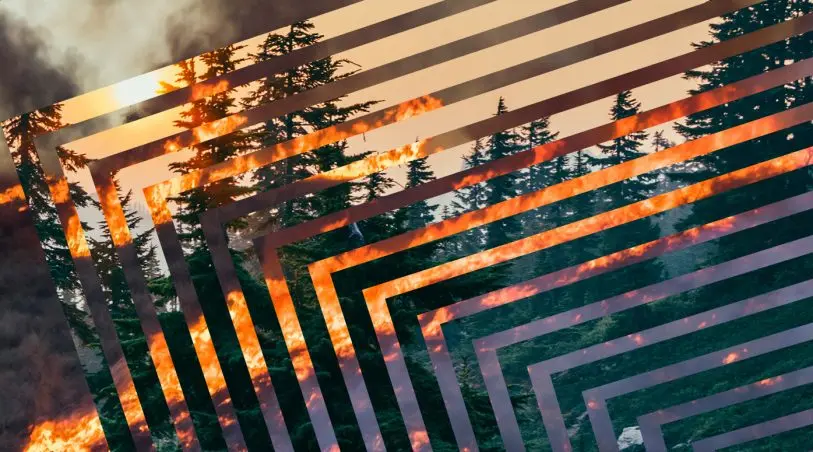
How to shift the paradigm
It’s this centuries-old argument and the shifting meaning of the nature of “machines” and the “machinery” of nature—an argument integrally fused with the founding of modern science—that Klein hits upon when she says that our mechanical treatment of the living world lies at the core of our current planetary catastrophe. As it becomes increasingly obvious that this paradigm has reached its terminal endpoint and a revolutionary global shift from a mechanical-industrial to an ecological civilization is, in fact, our only hope, it’s worth being clear about what a paradigm shift actually is, how they’ve happened collectively in the past, and what delays and accelerates their completion.
The classic 1962 book that introduced the phrase “paradigm shift” into mass consciousness, The Structure of Scientific Revolutions, by Thomas Kuhn—one of the most influential books in the history of science—itself provides a blueprint for our present moment and echoes as a companion book to On Fire. Kuhn outlined the anatomy of scientific revolutions, tectonic shifts in understanding and perception to a new level, sparked by a crisis that can’t be resolved by the old paradigm. He transformed our understanding of the progression of science not as a gradual accumulation of knowledge over the centuries, but as a series of dominant paradigms punctuated by “revolutionary breaks” (“non-cumulative breaks”) from the past, transformations that he likened to a “gestalt switch” and “conversion experience.”
The Structure of Scientific Revolutions covers the biggest paradigm shifts in scientific history, from the Copernican revolution’s shift from geocentrism to heliocentrism, to the fulcrum of the scientific revolution in 1687 with Isaac Newton’s publication of his Principia, which mathematically formulated the laws of motion and universal gravitation, to Einstein’s revolutionary theory of relativity, which shattered the classical Newtonian framework of absolute time and space.
One stunning takeaway from reading Kuhn alongside Klein is that in many ways they’re writing about the same, still unfinished revolution—the revolutionary shift out of the centuries-old Newtonian passive mechanical paradigm that Einstein kicked off a century ago in physics, but has yet to be translated into our actual world (even as Einstein’s relativity revolution was followed by the quantum revolution and other new frontiers in the mathematics and geometry of the universe that we’re just beginning to grasp).
Thomas Kuhn…in both political and scientific development the sense of malfunction that can lead to crisis is prerequisite to revolution.”
Kuhn even wrote about the applicability of his study of scientific revolutions to political ones: Just like the transformative scientific revolutions he tracked, “political revolutions are inaugurated by a growing sense, often restricted to a segment of the political community, that existing institutions have ceased adequately to meet the problems posed by an environment that they have in part created,” adding that “in both political and scientific development the sense of malfunction that can lead to crisis is prerequisite to revolution.”
Just as Klein explains that she has been “framing our project as one of transformation, not incrementalism” (the Canadian movement for a Green New Deal-style transformation, of which she was a core founder, is also officially called “The Leap“), Kuhn wrote that “the transition between competing paradigms cannot be made a step at a time, forced by logic and neutral experience. Like the gestalt switch, it must occur all at once (though not necessarily in an instant) or not at all.”
“The transfer of allegiance from paradigm to paradigm is a conversion experience that cannot be forced,” Kuhn explained, using a religious metaphor echoed by Klein more than 50 years later in her essay on Pope Francis’s climate change encyclical and her related invitation to the Vatican. “People of faith, particularly missionary faiths, believe deeply in something that a lot of secular people aren’t so sure about: that all human beings are capable of profound change,” and that “that, after all, is the essence of conversion,” Klein writes. But as Kuhn explained, scientific paradigm shifts are very much conversion experiences too: “The conversion experience that I have likened to a gestalt switch remains, therefore, at the heart of the revolutionary process,” he wrote. (The similarity between a religious and ecological conversion was articulated in 2018 by Pulitzer Prize-winning author Richard Powers, who described the process of researching and writing his ecological novel The Overstory as a “religious conversion,” in the sense of “being bound back into a system of meaning that doesn’t begin and end with humans.”)
The person “who embraces a new paradigm is like the man wearing inverting lenses,” who, “confronting the same constellation of objects as before and knowing that he does so, he nevertheless finds them transformed through and through in many of their details,” Kuhn wrote, using a metaphor that offers a profound insight into our fatally maladjusted perception of the natural world.
We are about to take off—or have ripped off by reality—these antiquated lenses, and may experience a wicked headache for a while as we readjust to seeing the world as it really is. But when our vision clears again, we’ll no longer have to tolerate, as Klein describes it, “the debilitating cognitive dissonance that living in a culture that is denying the reality of so profound a crisis requires.”
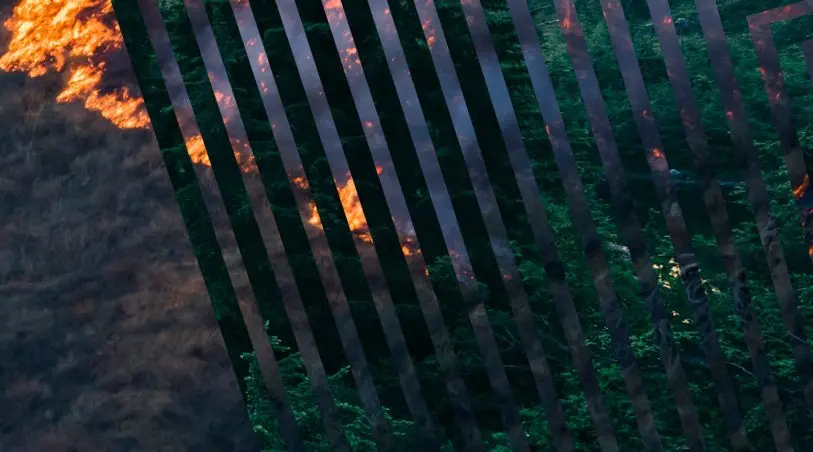
Minutes to midnight in our clockwork universe
Revolutionary possibilities begin to open when “nature itself must first undermine professional security by making prior achievements seem problematic,” as Kuhn put it. The motion toward a new paradigm begins “only after persistent failure to solve a noteworthy puzzle has given rise to crisis,” he wrote. A crisis within the old paradigm was the “usual prelude” to revolution, which serves as “a self-correcting mechanism” that is “terminated, not by deliberation and interpretation, but by a relatively sudden and unstructured event like the gestalt switch.” While Kuhn’s past crises revolved around scientific matters such as the motion of celestial bodies or questions involving the speed of light, our ecological crisis now revolves around the collapse of the web of life on earth, the ultimate crisis point through which nature could not be making our “prior achievements” seem any more “problematic.” Our “Clockwork Universe” model of the living world has a built-in alarm clock of natural limits, now blaring for us to wake up and reset everything before we die in our sleep.
To transform our civilization before its ecological death will mean putting ourselves through the transformational fires first, if we hope for it to catch. “We have to find our own fire, we have to be that fire,” as Klein put it at The Intercept’s September event featuring young climate activists. Unlike the fires now ravaging the planet, for Klein, “we’re talking about the fires of creation.”
In other words, it’s time to steal fire from the gods—to remake our world and ourselves in the reflection of life, rather than the opposite.
There was a French Jesuit priest and paleontologist named Pierre Teilhard de Chardin, born in 1881, who is still popular today for his visionary ideas, such as those about the development of collective consciousness. Pope Francis even cited him in his climate change encyclical. In a message that seems posted to this very moment, he made the ultimate human prediction: “The day will come when, after harnessing the ether, the winds, the tides, gravitation, we shall harness for God the energies of love. And, on that day, for the second time in the history of the world, man will have discovered fire.”
No machine can predict what will happen next.
Recognize your brand’s excellence by applying to this year’s Brands That Matter Awards before the early-rate deadline, May 3.
